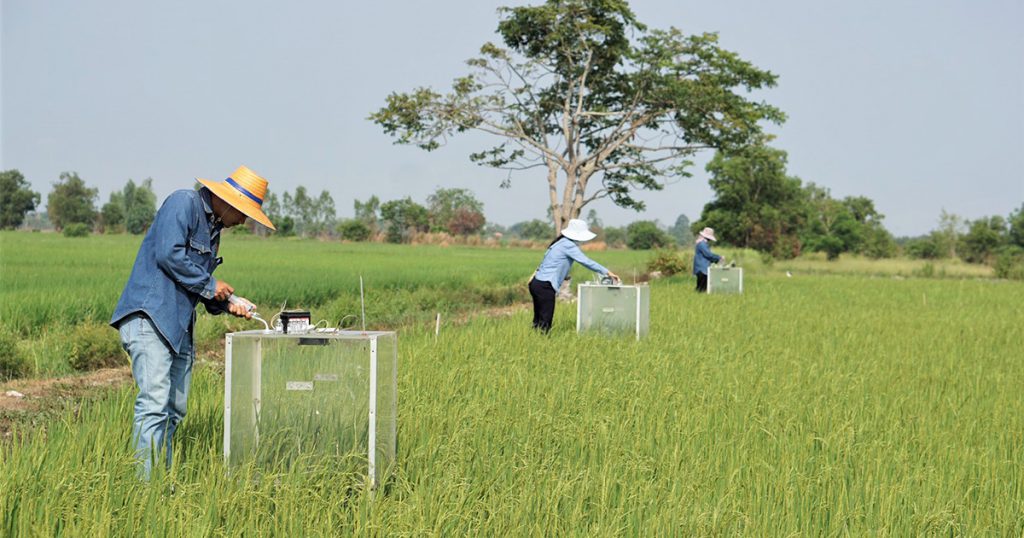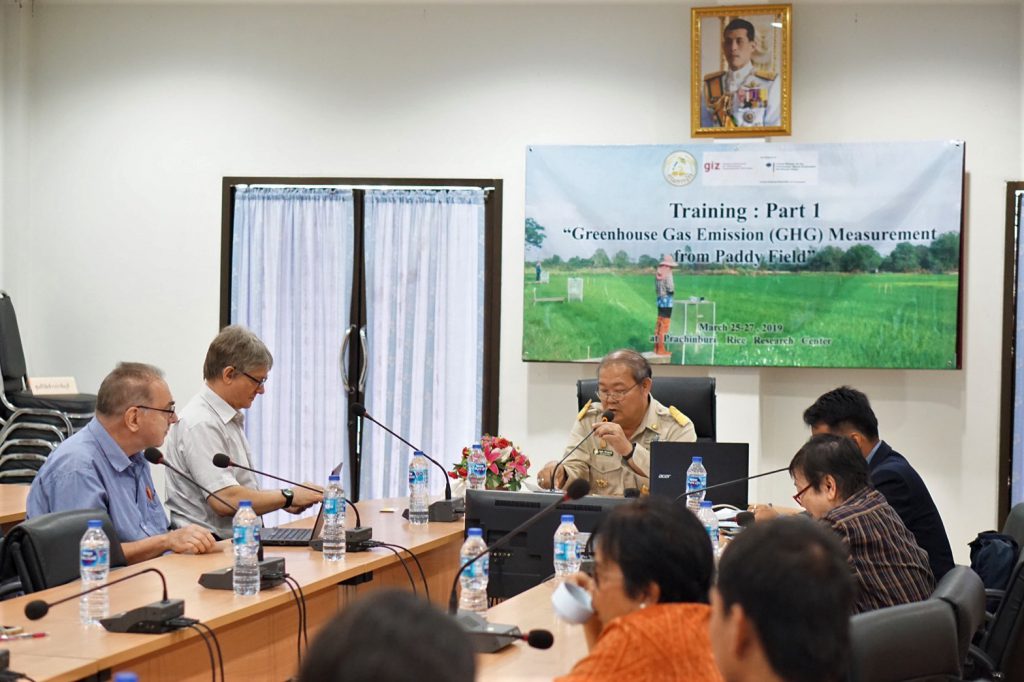Global warming affects all sectors especially the agricultural sector which significantly ensures food security and maintain economic conditions of the country. The time has therefore come for the Thai government to put into place more precise and verifiable field measurements to reduce greenhouse gas emissions from rice farming.
How can we measure the amount of greenhouse gas emissions from rice farming?
In this context, a training session on measuring greenhouse gas emissions from paddy fields was organised for the first time in Prachin Buri province, central Thailand on 25 – 27 March 2019, by the Rice Department in collaboration with the International Rice Research Institute (IRRI) and GIZ, on the setting up of a high-quality greenhouse gas emission database. This will contribute to Thailand’s plan to significantly reduce greenhouse gas emissions from agriculture.
Researchers from the local rice research centres and rice seed centres in Chainat, Angthong, Pathum Thani, Sing Buri, Ayutthaya and Suphan Buri provinces were trained to analyse and collect greenhouse gases from the paddy field.
The training covered greenhouse gas measurement methodology, the logistics of operation and reporting by the Rice Department’s researchers and the team that will oversee the data collection at the Rice Department.
Local teams of Rice Department researchers will collect and analyse gas concentrations by using a chromatograph, evaluating greenhouse gas emissions from rice cultivation in the responsible areas . They will then send the data to Rice Department headquarter, which works closely with the Office of Agricultural Economics and the Office of Natural Resources and Environmental Policy and Planning, the main agencies responsible for the implementation of climate change policy in the agricultural sector and at the national level, respectively. These processes will also enable the GIZ rice projects and Thai partner organisations to measure the efficiency of the agricultural techniques and activities in term of greenhouse gas mitigation as well as to plan future development activities effectively.
Future training sessions will focus on the correct handling of gas chromatographs, the sensitive scientific equipment needed for analysing gas emissions.
The Thai-German Climate Programme (TGCP) – Agriculture project embarked on its journey to counter climate change in 2018 and is supporting Thai agencies in developing a national Measurement, Reporting and Verification (MRV) system for the rice sector that meets international standards.

